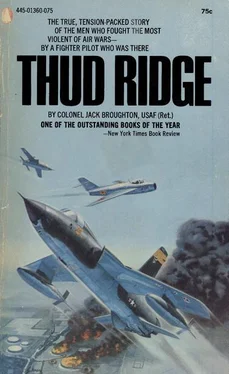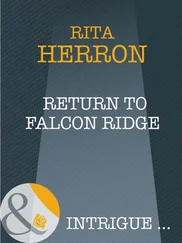We brag of our concern for the families of those under stress. I don’t believe it. I’ve seen the system stumble time after time, and I have seen letters to these gals addressed “Dear Next of Kin.” This fine woman has received close to zero assistance or information since she returned to the States and she is not the only one in that situation. She received a telephone call recently advising her to watch television the following Saturday as there would be some films on prisoners, and to let them know if she thought one of the prisoners might be her husband. The poor woman stewed through Saturday and until Monday when the film finally appeared, then strained over the television picture through some of the most gruesome seconds of her life.
We could not go to her home with projection equipment or take her to a government facility with projection equipment and stop-frame that film and blow it up and give her a decent look. We could not even use our intelligence sources to tell her what to look for. We told the world why in a statement from Washington. The film was Communist tainted and we would not touch it. I wonder if the film is as tainted as the slop our guys have been living on the past few years. Absurd. I’m afraid she made a mistake in a letter she wrote to me when I returned to the States. She said in part, “It’s just wonderful that Colonel Broughton is back and safe. I know that you won’t forget those of us for whom the war will continue….”
I still have the prayer Art gave me in Japan and I read it nightly. Quite often it is all the emotional stimulus that I can stand.
Lord off all power and might, Who art the Author and Giver of all good things, mercifully grant us grace valiantly to fight in Thy cause. Give us the sure conviction that Thou art ever by our side. Grant us in battle unflinching courage and an unconquerable spirit, so that no hurt nor obstacle may ever deter us from our duty. And in victory, O Lord, Grant us to be worthy of Thine everlasting love and to continue Thy Faithful Soldiers and Servants unto our life’s end: and this we beg for Jesus Christ, His sake. Amen.
The calendar rolled for a month and a basic change in our overall policy became apparent to us at the operating level when we were assigned a new series of targets. The United States was stepping up the pressure, even if only a little, and we knew it as we started studying maps and photos that told us we would probably get to attack closer to Hanoi sometime soon. The targets and the directions to execute our strikes against them came to us from Saigon. The daily details arrived at each unit on a fragmentary portion of the overall correspondence that the headquarters published to put all of its assigned forces into action, and this paper became known as the frag. Thus, in our terminology, we were fragged to do thus and so each day. While we knew we had a bundle of hot target information that we had to digest in intimate detail, we also knew that any number of considerations, not the least of which was weather, could preclude our being fragged on the selected targets for an indeterminate time period. We also knew that those of us doing the job at wing level would have nothing to say about when or how we did the job or what we would vise to do it with.
We knew that we would be required to prepare ourselves fully for several alternate missions each day, and that at the last minute we would, in our terminology, be executed against one of the targets we had studied; that is, we would be sent on one of them. We almost never got canceled out completely. We knew that we would use every ounce of power in our engines, plus our afterburners, and water from an internal tank mounted in the aircraft sprayed into the flame pattern of our tail pipes to gain every possible ounce of push to launch our bomb-laden birds off the concrete and into the murky air of Asia. Shortly after takeoff we knew that the people who ran the ground radar stations would direct us to the spot of sky where our tankers would be waiting, knowing that we had already used a sizable portion of our fuel just to generate the power necessary to coax our charges to altitude. We would nuzzle up to them and they would nurse us northward as far as they dared go, and then with our bellies stuffed with fuel we would fall off the refueling boom extending from the rear of the flying gas stations and charge to the north. We also hoped that they would be there waiting for us later to nurse us south again, and we hoped that we would be there and in condition to accept the homeward-bound present of fuel.
One day, when it seemed that we had been on this particular merry-go-round for at least a year, it was Don’s turn to lead and I was flying number three for him. He and I generally agreed on tactics and techniques, but everyone has his pet areas of emphasis. Don, one of our squadron commanders, was a speed man. He believed in jettisoning the drop tanks when they fed out and going just as fast as he could, regardless of fuel and regardless of defenses. He was also of the school holding that if you ran into Migs, the only course was straightaway speed. I preferred not to drop my tanks unless absolutely necessary as it was one more variable that could goof you up, and a tank that does not go properly can knock you flat out of the sky. (We have at least two of our troops in the Hanoi Hilton for this very reason, and probably others we donjt know about.) Also, without the tanks you were not good for rescue cover, should it be needed; you went to the tanker and filled up and by the time you were back in the hot area you were so low on fuel that you had to leave again. All of us wanted lots of speed with the Migs, but I preferred high speed and maneuvering in my favorable performance envelope, at low altitude, with the chance of getting a shot at the Mig.
Although there was no disregarding our orders from Saigon, we were pretty sure that we would get skunked on weather on the mission for this day, and, even worse, we would leave little doubt in the enemy’s mind as to what we were after.
The weather beat us time after time and forced us to the non-satisfying alternate targets, but the word for this particular day was try again. We went through the normal routine, and as we departed the tankers we got our force nicely lined up in their appointed positions and headed once again into the delta area. As we switched over to the radio -frequency we would operate on during this strike, we found the radio channel already full of noise and active from all the others in the air. It was so noisy on this particular day that I activated the miniature Japanese tape recorder I had stuffed in the back of my cockpit and connected through my headset. I knew that this would be a noisy one and I wanted to have it all on tape to restudy after we returned.
“This is Nash four five here, ah, weather looks pretty sloppy. We’re in position at this time.”
The simple “Rog, copy” indicated that his mate understood and was ready to go to work.
His boss was obviously not pleased with the weather outlook and the protective blanket that it provided for the SAMs working underneath it. “Rog, I’m just crossing by the little islands. Pintail is the force leader and, ah, let’s stay pretty close together today. It doesn’t look very good.”
Adequate time had passed since the command to change radio channels and our flight leads were mechanically checking to insure that their charges were on the right channel and ready for action. Don started the parade with “Pintail check.”
He was greeted with a sharp “Two.”
“Three.”
“Four.”
“Elmo check.”
“Two.”
“Three.”
“Four.”
Before the rest of the flights checked in, Don announced an aircraft problem with “Pintail three—lead here. I’ve just lost my Doppler.” That was about average. The Doppler is a precise piece of navigation gear that is a beauty when it works. You had to tell the rig where you were by setting some knobs and gadgets over a fixed geographical point, and from then on, it will tell you all sorts of good things like where you are, how to get where you want to go, and how fast you are really getting there. When you are moving at a pretty fast clip in an area where there are no aids to navigation other than what you can see, it is an important gadget. When you can’t see anything, as we couldn’t on this day because of the cloud cover, it becomes very close to vital. The only problem with the mechanism was that it was about as temperamental as a batch of black boxes could get, and believe it or not, it seemed to have the uncanny ability always to go ape when you needed it most. Our maintainers had a barrelful of statistics to prove how great the system was and nobody other than the participating pilots took the repeated complaints too seriously. There are superior navigation systems that have been available for some time, but they never computed out as cost effective. Charles Blair, who has flown solo over the North Pole twice in single-engine fighters to prove a navigational point, can tell you better than I that our support people have failed to procure a better navigational mousetrap.
Читать дальше












